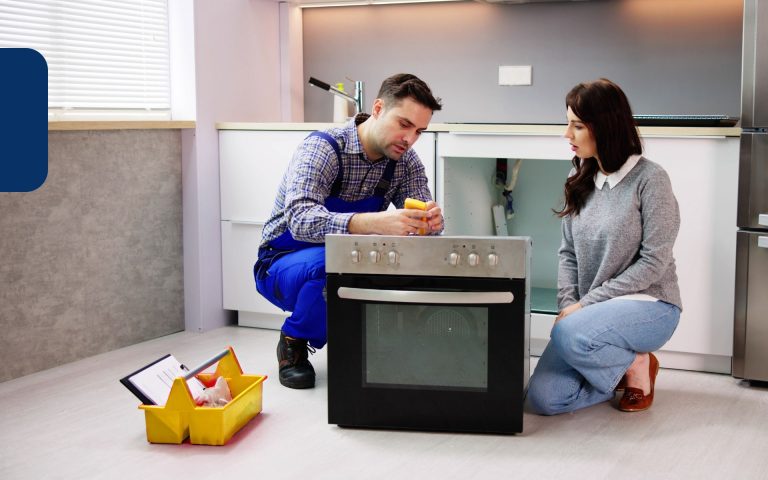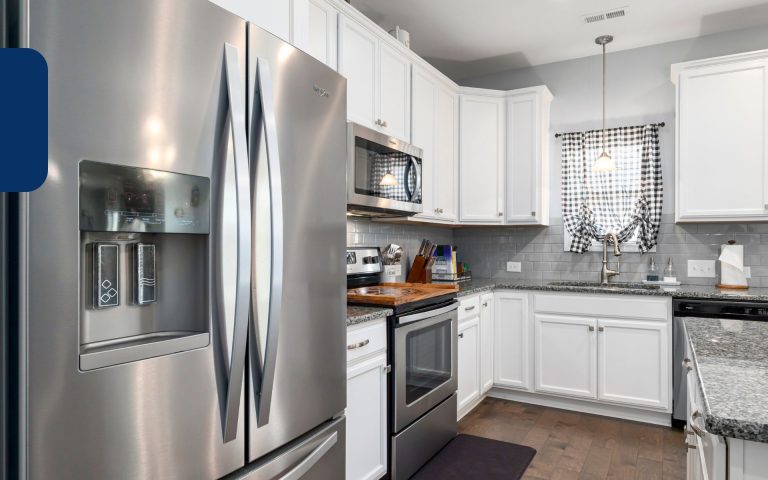How to Choose the Perfect Appliance for Your Home
How to Choose the Perfect Appliance for Your Home
Comprehensive information to guide you through the decision-making process when selecting and purchasing a new appliance.

Selecting the right appliance for your home is a significant decision, one that can impact your daily life for years to come. With countless brands, models, and features available, the process can seem overwhelming. This guide will walk you through the key steps to help you choose the perfect appliance that meets your needs, fits your space, and stays within your budget.
- Assess Your Needs and Lifestyle: The first step in choosing an appliance is to consider your household’s specific needs and lifestyle. Start by asking yourself a few important questions:
Household Size: How many people live in your home? Larger families might require high-capacity appliances like refrigerators and washing machines to accommodate more food storage or laundry loads. On the other hand, a single person or a couple might prioritize space-saving models.
Usage Frequency: How often do you use the appliance? If you cook daily, investing in a high-quality, durable stove or oven is essential. Similarly, if you frequently do laundry, a washing machine with robust features will be worth the investment.
Lifestyle Considerations: Think about your lifestyle and preferences. For example, if you entertain guests often, you might want a dishwasher with a large capacity and quick wash cycles. If sustainability is important to you, focus on energy-efficient appliances that reduce your environmental footprint.
By understanding your unique needs, you can narrow down your choices and focus on appliances that align with your lifestyle.
- Space and Design Compatibility: Before you start shopping, measure the space where the appliance will be installed. This step is crucial to ensure the appliance fits perfectly and doesn’t obstruct pathways or other household areas.
Measure Twice, Buy Once: Measure the height, width, and depth of the space, and don’t forget to account for door clearance, ventilation space, and easy access to outlets or water connections.
Design Aesthetics: Consider how the appliance will fit into your home’s overall design aesthetic. Many modern appliances come in various finishes like stainless steel, matte black, or custom panel-ready options. Choose a finish that complements your kitchen or laundry room decor.
Built-In vs. Freestanding: Decide whether you prefer built-in or freestanding appliances. Built-in options, like wall ovens or integrated refrigerators, offer a seamless look but may require more installation work. Freestanding models are easier to install and can be moved if you relocate or redesign your space.
- Energy Efficiency and Environmental Impact: In today’s eco-conscious world, energy efficiency is a critical factor when selecting an appliance. Energy-efficient appliances not only reduce your carbon footprint but also lower your utility bills, providing long-term savings.
Look for the Energy Star Label: Appliances with the Energy Star label meet strict efficiency guidelines set by the Environmental Protection Agency (EPA). These appliances use less energy and water, making them a smart choice for both the environment and your wallet.
Understand Energy Ratings: Familiarize yourself with energy ratings and what they mean. The EnergyGuide label provides an estimate of the appliance’s annual energy consumption and operating cost, allowing you to compare models easily.
Consider Water Efficiency: For appliances like washing machines and dishwashers, water efficiency is equally important. Look for models that offer eco-friendly wash cycles or smart sensors that adjust water usage based on the load size.
- Key Features and Innovations: Appliances today come with a wide array of features and technological advancements designed to enhance convenience and functionality. Understanding these features can help you choose an appliance that meets your specific needs.
Smart Technology: Many modern appliances are equipped with smart technology, allowing you to control and monitor them remotely via smartphone apps. For example, smart refrigerators can send you alerts if the door is left open, or smart ovens can preheat remotely. These features offer added convenience, especially for busy households.
Customizable Settings: Look for appliances with customizable settings that cater to your specific preferences. For instance, washing machines with multiple wash cycles or ovens with preset cooking modes can simplify your daily tasks and provide better results.
Noise Levels: Consider the noise level of the appliance, especially for items like dishwashers, washing machines, and dryers. Appliances with lower decibel ratings are quieter, which is important if they will be used near living or sleeping areas.
Safety Features: Safety is paramount, particularly in homes with children or elderly individuals. Look for appliances with features like automatic shutoff, child locks, or cool-touch exteriors to prevent accidents.
- Budget Considerations and Long-Term Value: Budget is a major factor in any appliance purchase, but it’s important to think beyond the initial cost. Consider the long-term value of the appliance, including energy savings, durability, and maintenance costs.
Set a Realistic Budget: Determine how much you’re willing to spend based on your needs and the type of appliance. While it’s tempting to go for the cheapest option, investing a bit more upfront can pay off in the long run with better performance and durability.
Factor in Maintenance and Repair Costs: Research the average lifespan of the appliance and potential maintenance costs. Some high-end appliances might require specialized care, while others come with more affordable repair options.
Look for Financing Options: If the appliance you need is slightly out of your budget, check if the retailer offers financing options. Many stores provide payment plans that allow you to spread out the cost over several months without interest.
- Research and Reviews: Once you’ve narrowed down your options, take the time to read reviews and do some research. Customer reviews provide insights into real-world performance and reliability that you won’t find in product descriptions.
Read Online Reviews: Look for patterns in reviews—if multiple customers mention the same issue, it could be a red flag. Pay attention to both positive and negative feedback to get a balanced perspective.
Consult Expert Reviews: Expert reviews from trusted sources like Consumer Reports or specialized home appliance websites can provide in-depth analysis and comparisons. These reviews often include performance tests and reliability ratings that are invaluable in making an informed decision.
Ask for Recommendations: Don’t hesitate to ask friends, family, or even sales associates for their recommendations. Personal experiences can offer valuable insights and help you feel more confident in your purchase.
Conclusion: Choosing the perfect appliance for your home requires careful consideration of your needs, space, budget, and the latest technological advancements. By following these steps and taking the time to research your options, you’ll be well-equipped to make a decision that brings long-term satisfaction and value to your home. Whether it’s a new refrigerator, washing machine, or oven, selecting the right appliance can enhance your daily life and contribute to a more efficient, comfortable living environment.



